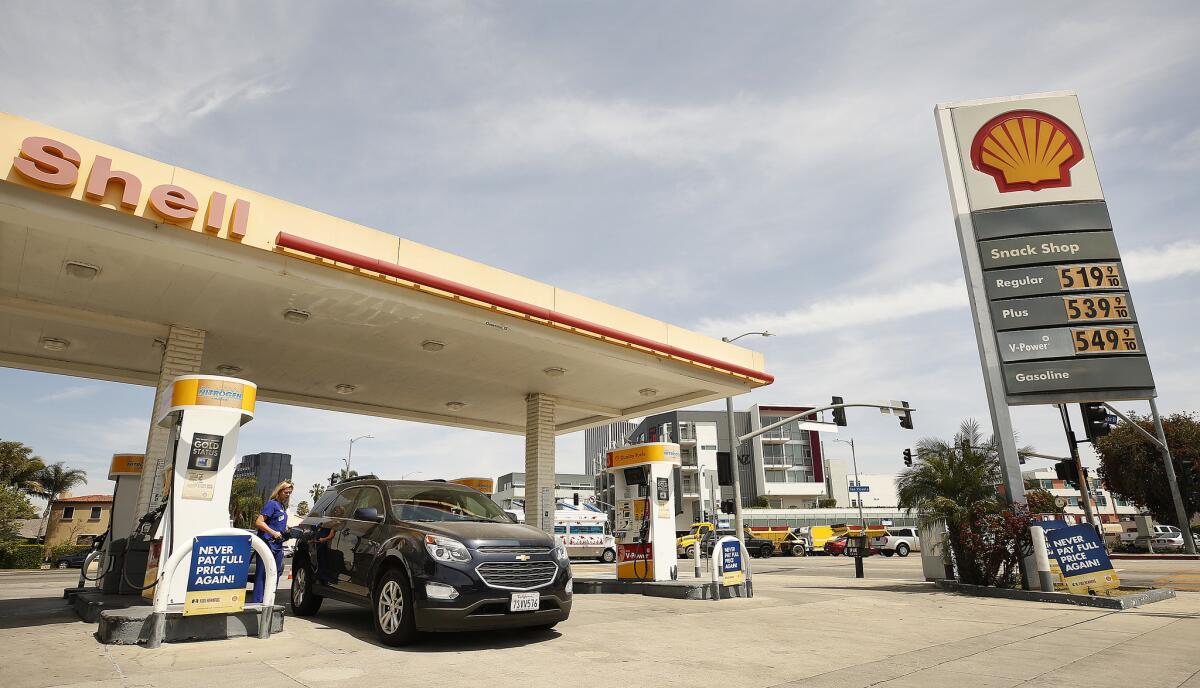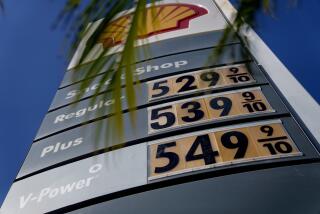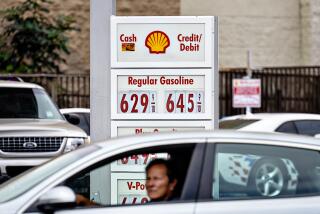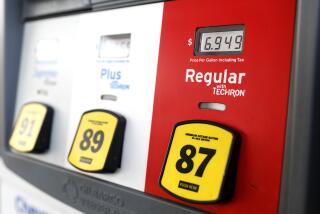Why are gas prices so high? California will probe possible ‘market manipulation’

The California Energy Commission has concluded that “market manipulation” may be one factor in why the state’s gas prices are so high and has proposed a five-month study to pin down why motorists here pay more than those in the rest of the country.
California motorists were paying an average of $4.05 a gallon for gasoline on Friday, the highest price in the country and $1.20 more than the national average, according to AAA.
“The Energy Commission has identified a number of possible causes that could explain the residual price increase in California, ranging from refinery outages to potentially market manipulation,” the panel said in a six-page memo to Gov. Gavin Newsom.
The commission concluded that a study should be conducted “to thoroughly quantify the possible causes discussed in this memo. The Energy Commission proposes to spend the next five months examining those causes and reporting back to the Governor.”
The memo was sent to Newsom, who requested a review of the high gas prices last month and on Friday supported the planned deeper dive into the issue.
“We appreciate the work of the Energy Commission and look forward to reviewing their findings,” said Brian Ferguson, a spokesman for the governor.
The oil industry responded Friday by saying that causes for the state’s gas prices include market forces, the state’s environmental rules, such as a requirement for special blends of gas, as well as the state’s decision in 2017 to raise the gas tax by 12 cents per gallon to pay for road repairs.
“This report provides further evidence of what market experts and government agencies have maintained for years: there are many factors that influence movement in the price of gasoline and diesel, but the primary driver is the dynamics of supply and demand of crude oil,” said Catherine Reheis-Boyd, president of the Western States Petroleum Assn.
The initial review by the Energy Commission said that California gasoline prices have “diverged noticeably from U.S. averages” beginning in 2015 when an explosion at the Torrance refinery interrupted supplies.
“While that outage lasted roughly one and a half years, the increase in California gasoline prices remained well after the restoration of normal operations at Torrance,” the report said.
The “residual” price impact ranging of between 17 cents and 34 cents per gallon has remained in the market, and might be explained in part by other refinery outages and crude prices, the report said.
Others have labeled the differential in price as a mystery surcharge, the cause of which is debatable.
The commission said that at least part of the explanation for the residual cost could be the ”practice of higher-priced brand retailers of gasoline — Chevron, Shell, Exxon, Mobil, and 76 — to charge higher prices than unbranded, ARCO and hypermart retailers, for essentially the same product.”
That issue would be a focus of the five-month study, the commission said.
“While this practice is not necessarily illegal, it may be an effort of a segment of the market to artificially inflate prices to the detriment of California consumers and could account for at least part of the price differential,” the memo said.
Representatives of oil companies, including Chevron, referred requests for comment on the report’s findings to the Western States Petroleum Assn.
The state’s “cap-and-trade” program that requires polluting businesses to pay for credits to offset the impact of their operations, also play a role in California’s higher fuel prices, the report said.
Assembly Republican leader Marie Waldron of Escondido put much of the blame for high gas prices on the Democratic majority in control of state government.
“We know the most obvious cause of high gas prices and that’s the gas tax that was voted by Democrats two years ago, with more increases coming,” said Waldron. She also said the state Air Resources Board is considering stricter regulations on refineries that she believes will drive up gas prices.
“If there is fraud in the market, we certainly need to put an end to it. But if we want to lower gas prices immediately, there’s a simple solution — repeal the gas tax,” Waldron said.
Consumers can still find competitive prices if they shop around, according to Marie Montgomery Nordhues, a spokeswoman for the Automobile Club of Southern California.
“California gas prices could definitely benefit from increased competition, increased refinery capacity, and easier access to alternative fuel sources in other parts of this country,” she said.
The new five-month study announced Friday may not be the only look at California gas prices.
Some lawmakers have asked state Atty. Gen. Xavier Becerra to look into the surcharge at the start of the year, but the Department of Justice has not commented publicly on the request.
Sign up for our Essential Politics newsletter »
Twitter: @mcgreevy99
More to Read
Get the L.A. Times Politics newsletter
Deeply reported insights into legislation, politics and policy from Sacramento, Washington and beyond. In your inbox three times per week.
You may occasionally receive promotional content from the Los Angeles Times.







